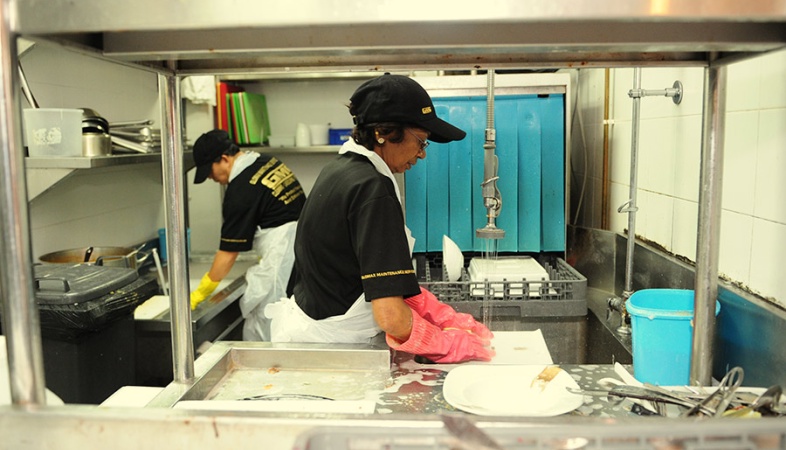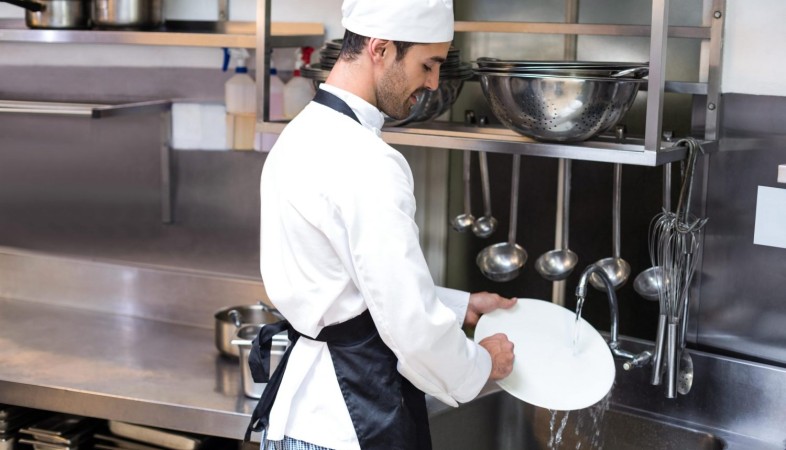The Future of Kitchen Stewarding: Trends and Technologies Shaping the Industry Landscape
The future of kitchen stewarding is characterized by emerging trends and technologies that are reshaping the industry landscape.

As the culinary landscape evolves and consumer expectations
continue to rise, kitchen stewarding is undergoing a transformation driven by
emerging trends and innovative technologies. Let's explore the future of
kitchen stewarding and the trends and technologies that are shaping the
industry landscape.
1. Automation and Robotics:
The future of kitchen stewarding will be characterized by increased automation and the widespread adoption of robotics to streamline operations and improve efficiency. Automated dishwashing systems, robotic kitchen assistants, and self-cleaning equipment will reduce manual labor and free up kitchen staff to focus on more specialized tasks, leading to greater productivity and cost savings.
2. Sustainable Practices:
Sustainability will play a central role in the future of kitchen stewarding, with a growing emphasis on eco-friendly practices and waste reduction initiatives. From composting food waste and using biodegradable cleaning products to implementing energy-efficient appliances and reducing water consumption, kitchens will prioritize environmental stewardship to minimize their carbon footprint and appeal to environmentally conscious consumers.
3. Smart Kitchen Technologies:
Advancements in smart kitchen technologies will revolutionize the way kitchen stewarding operates, with connected devices and IoT (Internet of Things) solutions enabling real-time monitoring, predictive maintenance, and remote management capabilities. Smart sensors embedded in equipment can alert staff to potential issues before they escalate, while cloud-based software platforms provide insights into performance metrics and operational efficiency.
4. Data Analytics and AI:
Data analytics and artificial intelligence (AI) will play an increasingly important role in optimizing kitchen operations and enhancing decision-making processes. AI-powered algorithms can analyze data from various sources, such as inventory levels, equipment usage, and customer preferences, to identify trends, predict demand, and optimize resource allocation. This data-driven approach will enable kitchens to operate more efficiently and deliver a superior dining experience.
5. Personalized Dining Experiences:
The future of kitchen stewarding will be characterized by personalized dining experiences tailored to individual preferences and dietary requirements. From customizable menus and on-demand meal options to allergen-free cooking and dietary tracking apps, kitchens will leverage technology to cater to the diverse needs of their guests and deliver a more personalized and memorable dining experience.
6. Remote Monitoring and Management:
Remote monitoring and management capabilities will enable kitchen managers to oversee operations from anywhere, providing greater flexibility and control over kitchen stewarding activities. With mobile apps and cloud-based platforms, managers can access real-time data, monitor performance metrics, and communicate with staff, ensuring that operations run smoothly and efficiently even when they are off-site.
The future of kitchen stewarding is characterized by emerging trends and technologies that are reshaping the industry landscape. From automation and robotics to sustainable practices, smart kitchen technologies, data analytics, personalized dining experiences, and remote monitoring and management capabilities, kitchens are evolving to meet the demands of a rapidly changing culinary landscape.
.png)





























